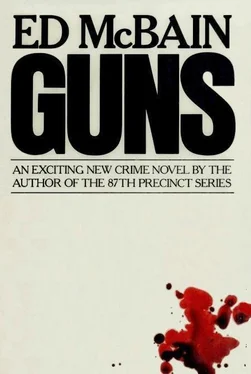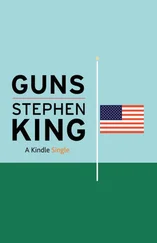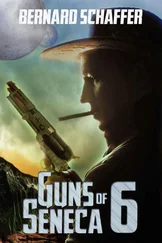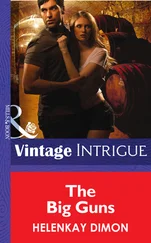“That’s right, and how old was your father when he died, may he rest in peace?”
“Okay, Mom, let me have the key.”
“God bless you,” his mother said, and kissed him on the cheek.
Colley unlocked the door, opened it, and reached in for the light switch. His mother had a Mickey Mouse lock on the door, you think she’d know better, especially in a neighbor hood getting blacker every day. He locked the door behind him, and then went through the apartment throwing on lights ahead of him. The apartment was a railroad flat, the rooms strung out one after the other so that you had to pass through one room to get to the next. The room he grew up in was at the end of the apartment, the single window in it overlooking the back yard. When he was a kid, he used to look out the window and see the waiters from the pizzeria out there having a smoke on a summer night. Once he looked down and saw one of the waiters dry-humping a girl against the brick wall of the building.
There was maple furniture in his room. A bed, a butterfly chair with paisley cushions, a low dresser, and a higher dresser that had one part of it looked like a wide drawer, but when you opened it the front fell down to become a desk. His mother kept that maple furniture waxed and polished as if she was expecting the queen of England to come there and use the room whenever she was in New York. Surprised his mother hadn’t sent the queen a key. That maple furniture had been a big deal when they moved up from Harlem. His mother had hit the numbers for two thousand dollars, that was the biggest anybody had hit in a long time. When they moved to the Bronx, she’d bought the maple furniture for his bedroom, and also a new couch for the living room. That was a long time ago.
In Harlem, he’d shared a room with Al. When they got up here to the Bronx, Al was fifteen. There were three bedrooms in the apartment, it was really a pretty good apartment and a nice neighborhood in those days. Their mother took the biggest bedroom for herself, of course, the one with the windows overlooking the street. On hot summer nights like tonight, she would put a pillow on the window sill and look down at the street; it was the best entertainment value in New York. Al got the second biggest bedroom — but it was Colley who got the new maple furniture. The furniture still looked brand-new. There was a maple lamp on the dresser, made to resemble a candlestick with a shade on it. Colley snapped on the lamp and took the gun out of his pocket.
He’d never had this particular gun with him here in his mother’s house. Only time he carried a gun nowadays was when he was going to a job or coming off it. Man didn’t carry a gun and risk getting busted for no reason. He didn’t know where to hide the gun now. He went out of the room and down the hall to the bathroom, passing what used to be Al’s room, but what his mother now used for her sewing machine and her card table. That’s where she probably was, out playing poker with her cronies. He thought he might take a towel from the bathroom, wrap the gun in it, and hide the gun and towel on the shelf in his closet, the back of the shelf there. But his mother would probably miss the towel, she probably knew exactly how many towels she had in the bathroom, she’d want to know what happened to the goddamn towel.
He went past the bathroom and into the kitchen — he was still holding the gun in his hand — and in the kitchen he put the gun on the enamel-topped table and looked in the cabinet under the sink to see if she had any of those plastic trash bags, but she didn’t have any of those, either. He saw some brown paper bags from the A&P under there, though, folded neatly alongside the garbage pail. He took one of these, and shook it open, and then picked up the .38, and put it in the bag, and folded the bag around the gun. You couldn’t tell there was a gun inside there. For all you knew, it could be a ham-and-cheese sandwich.
He smiled, went out of the kitchen, and walked down the hall again to what he still thought of as his room even though he’d moved out of the apartment eight months ago. He opened the closet door, pulled the light cord, and then shoved the gun way to the back of the shelf. His mother found it, he’d tell her he was holding the gun for somebody. She wouldn’t find it, though; she wouldn’t be searching for it, so how could she find it? He still kept a few clothes here in the apartment, and he took a pair of khakis from a hanger now, and also a short-sleeved sports shirt. He didn’t visit his mother too often nowadays, but whenever he did come up to the Bronx, he liked to make himself comfortable. He’d come uptown wearing a suit and a tie, for example, like when he came up last Easter on the subway, and then he wouldn’t feel like hanging around all day in a suit, so he’d change into a pair of jeans and a sports shirt, like that. Clothes didn’t mean very much to him. You got some guys, they scored on a job, they went crazy buying clothes. Colley spent the money on booze and women and nightclubs. He loved going to the Copa after a big score. Go in there with a blonde on your arm, guys in there knew you were somebody. Throw a few bills around, grease the skids, get a table up front, blonde sitting there with you.
He took off his shoes and socks — he’d have to wash out the socks before his mother got home, there was still some of Jocko’s blood on one of the socks — and then he took off the borrowed sweater and pants. He found a pair of clean underwear in one of the dresser drawers, and then he put on the khaki pants and the sports shirt and a clean pair of socks and the same shoes he’d been wearing on the job tonight — Jesus, how had things managed to go so wrong?
He went down the hallway to the bathroom.
While he was washing his socks he heard a boom of thunder and saw lightning flash against the pebbled glass of the bathroom window. Almost immediately, it began raining.
The club was called the Orioles, S.A.C.
The “S.A.C.” stood for “Social and Athletic Club,” but everybody on the block knew the Orioles was a bopping gang. There had been an Orioles down in Harlem long before Colley was born, back in the forties. When he was still a little kid, guys used to talk about the Orioles and what a great and powerful club it had been, with thousands of members all over Harlem and even in the Bronx. All the clubs died out in the late forties, early fifties; dope killed the clubs. Guys shooting heroin didn’t want to be bothered rumbling in the streets with other clubs. Didn’t want to be bothered about anything, in fact, except getting that glassine bag and ripping it open and cooking the shit in a spoon, man, and shooting it into a vein. Harlem didn’t have any clubs when Colley was growing up there in the fifties.
Harlem — Colley’s Harlem — was the area between First Avenue and Lexington Avenue, stretching from 125th Street on the north to 110th Street on the south. There were two other Harlems: Spanish Harlem, which was just west of the Harlem Colley knew; and Black Harlem, which was all the way over near Lenox Avenue, Colley guessed, somewhere all the way over on the other side of the city. There were Puerto Ricans coming into Colley’s Harlem even then, crossing the imaginary boundary line that was Lexington Avenue, drifting over from Park and Madison, moving into apartment buildings that had been exclusively Italian during the war years, almost filling up the project on 120th Street, bodegas and Spanish restaurants popping up everywhere; the neighborhood was changing.
That’s why Colley’s mother decided to move up to the Bronx. His father had died from cancer two years before, and all of his mother’s relatives had moved either to Jersey or Long Island, so there was nothing to keep her in Harlem any more. Then she hit the numbers for two thousand dollars, and one of the ladies in her poker game mentioned that an apartment was available on her block, so they’d packed up and made the move.
Читать дальше










